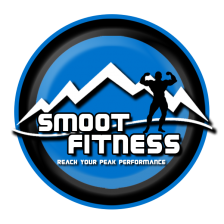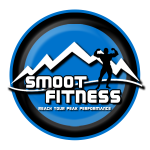One thing I’ve noticed as I continue to gain experience in the fitness industry is that A LOT of people get married to a textbook’s claims on how to do something.
If a textbook claims that a back squat should be performed ass to grass (ass to ankles) with a narrow stance, people start trying to squat ass to grass with a narrow stance.
Regardless of whether or not a wider stance feels better, doesn’t cause pain, allows them to maintain a better position, or ultimately allows them to lift more weight.
If a textbook claims that the proper way to diet is to eat 50 grams of carbs per day, people start trying to eat 50 grams of carbs per day.
Regardless of whether or not they feel like s*** on a low carb diet, perform better – in the weight room and out – on a high carb diet, don’t have access to large amounts of protein (which is needed in higher amounts if carbs are severely limited), or don’t find a low carb diet something that’s sustainable or maintainable long term.
If a textbook says the only way to get stronger is to lift 80-100% of your one rep max (1RM) for 1-5 reps, people start lifting 80-100% of their 1RM for 1-5 reps.
Regardless of whether or not lifting lighter loads faster, for more reps, or with a greater time under tension (TUT) produces similar gains in strength, is easier on their joints, is more enjoyable, or doesn’t make them feel like they want to die.
**I’m not saying lifting heavy loads for low reps isn’t an effective way to get stronger – it’s still my number one way of doing so – but lifting heavy isn’t the “right” or only way to get the job done.**
The problem with this, is although book knowledge is important (seriously, I’m not telling you not to read and expand your knowledge base), it’s no substitute for real-life, first hand experience.
Knowledge provides power, but only if that knowledge can be applied – and then manipulated – in a real-life situation or scenario.
It’s this “applied and then manipulated” part that a lot of people seem to miss.
And, that’s sad, because listening to your body – taking the information you’ve learned and testing it to see how your body responds, and what adjustments you need to make so your body will respond better moving forward – will take you MUCH FURTHER than following a textbook’s recommendations to the “T.”
Textbooks Operate in an Idealistic Reality
When a textbook claims you should squat ass to grass with a narrow stance, it assumes EVERYONE on the planet has the mobility, motor control, or biomechanical make-up to do so.
Watch me try to squat ass to grass with a narrow stance, and you’ll see this isn’t the case.
When a textbook says you should diet on less than 50g of carbs per day, it assumes EVERYONE responds well to a low carb diet.
I don’t know about you, but my strength plummets, my energy comes crashing down, and I start coasting through my day like someone who just took five hits off of some really good marijuana…but without the actual marijuana.
When a textbook says you should lift heavy weight for low reps to get stronger (again, that’s a VERY solid recommendation – not telling you not to do this), it assumes everyone has the joint health, mental capacity, or overall willingness and desire to do so.
Although I love lifting heavy – and anything over 5 reps feels like cardio to me – not all of my clients feel the same way.
What the textbook fails to take in to account when it makes these claims is the fact that YOU’RE NOT EVERYONE.
And, despite what the textbook may have you believe, YOU DON’T OPERATE IN AN IDEALISTIC REALITY.
Squatting ass to grass may be the “right” squat pattern for some people, but what happens when YOU go to do it, and your spine folds over like an accordion (not good), you don’t even come close to depth, or you have to cut the weight by about 50% of what you’re capable of with a wider stance?
Eating low carb may work for your buddy Jonathan, but what happens when YOU jump on the low-carb bandwagon, and your energy plummets, your performance drops, you get moody, or you start day-dreaming about a war between Krispy Kreme Donuts and Ben and Jerry’s?
Lifting heavy is a great – and my preferred – way to get stronger, but what happens when YOU go to lift heavy on a regular basis, and your joints act up, fatigue shoots up, your desire to train crashes down, and you ultimately start hating the training process?
Do you continue to listen to the textbook?
Do you ignore the obvious signs your body is giving you that WHAT YOU’RE CURRENTLY DOING ISN’T WORKING?
Of course not…**you listen to your body.**
Find What Works Best for YOU.
As I said before, I’m not telling you not to read textbooks.
Textbooks are extremely valuable, and most of what you read in a textbook IS highly useful information.
However, it isn’t enough just to know facts from the textbooks you’re reading.
You need to know how those facts APPLY to you and your unique situation, and you need to go in with the understanding that the claims made in a textbook are generalized, not individualized.
If YOUR body responds well to wide stance squatting, use a wide stance when you squat.
If YOUR body responds well to a high carb diet, follow a high carb diet.
And if YOU’RE making strength gains with lighter weights performed faster, for more reps, or with a greater TUT, keep training with lighter weights performed faster, for more reps, or with a greater TUT.
Just because a textbook says something doesn’t make it “right.”
Something becomes “right” when it’s tested in a real life situation, and produces noticeable improvements in performance or aesthetics that bring you one step closer to whatever goal(s) you’re looking to achieve.
So, with all of that being said, keep reading.
Keep trying to expand your knowledge base.
And keep trying to learn everything you can related to health and physical fitness.
But, just remember that what’s presented in a textbook isn’t necessarily “right” or “wrong.”
What’s presented in a textbook is a vast pool of knowledge that can be used for a vast array of purposes.
Each piece of knowledge?
Generates a completely different outcome.
It’s up to YOU to experiment with – and then manipulate – this knowledge until you come up with the outcome that gives you the best results.
Like What You See?
Get the Smoot Fitness Guide to Getting Stronger - FREE.



Leave a Reply